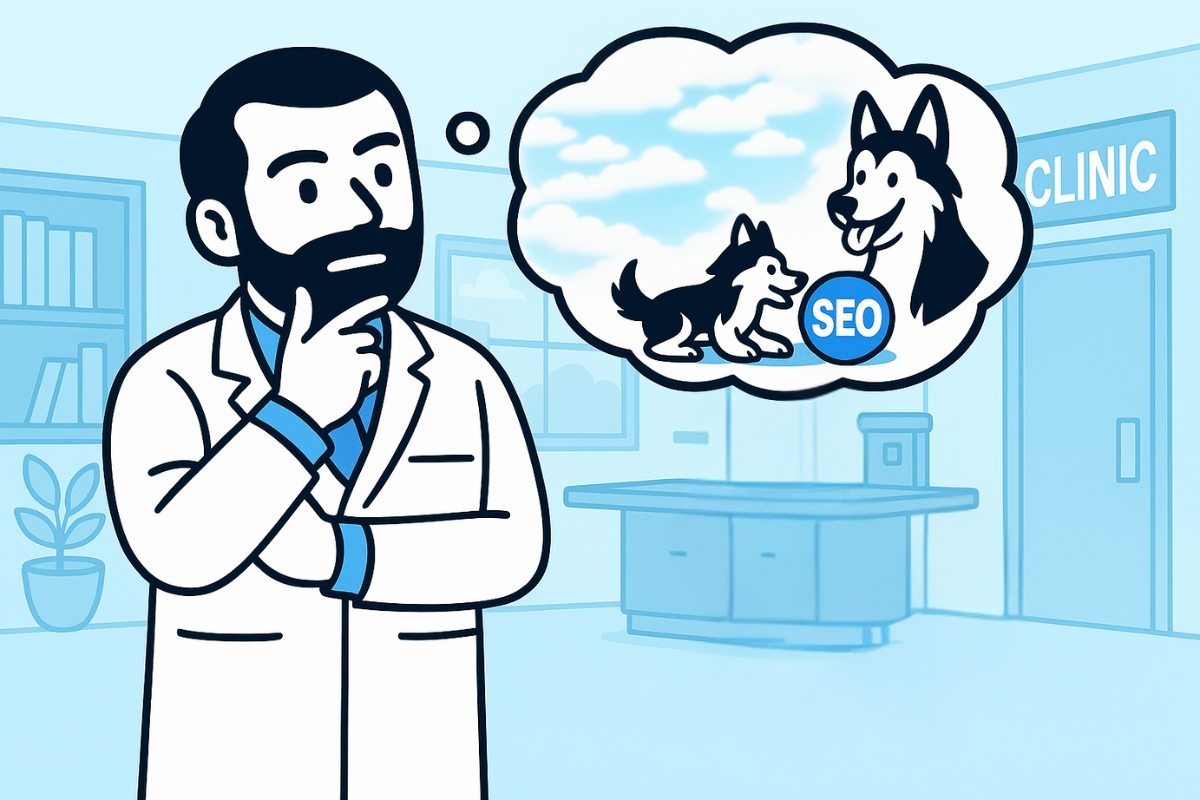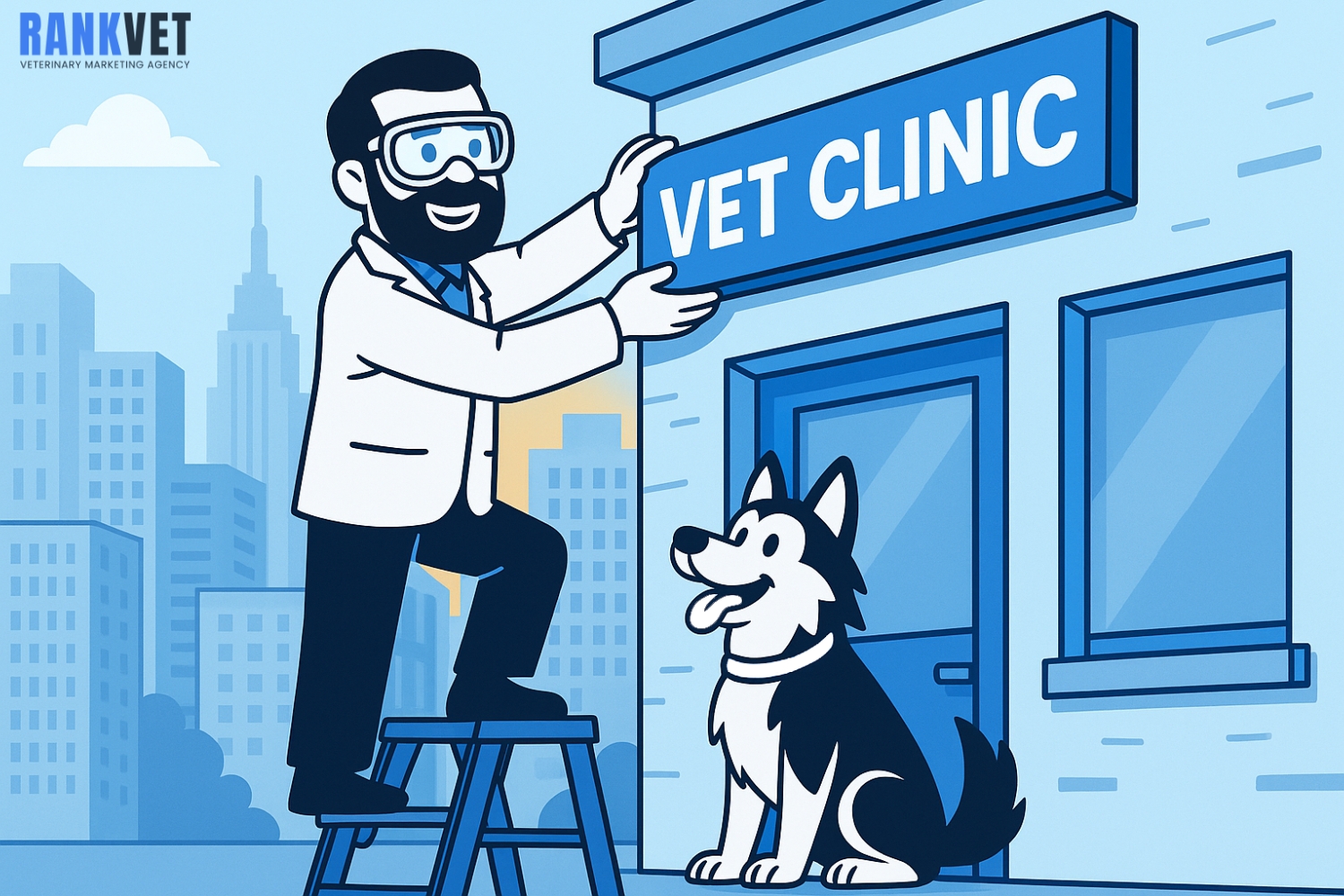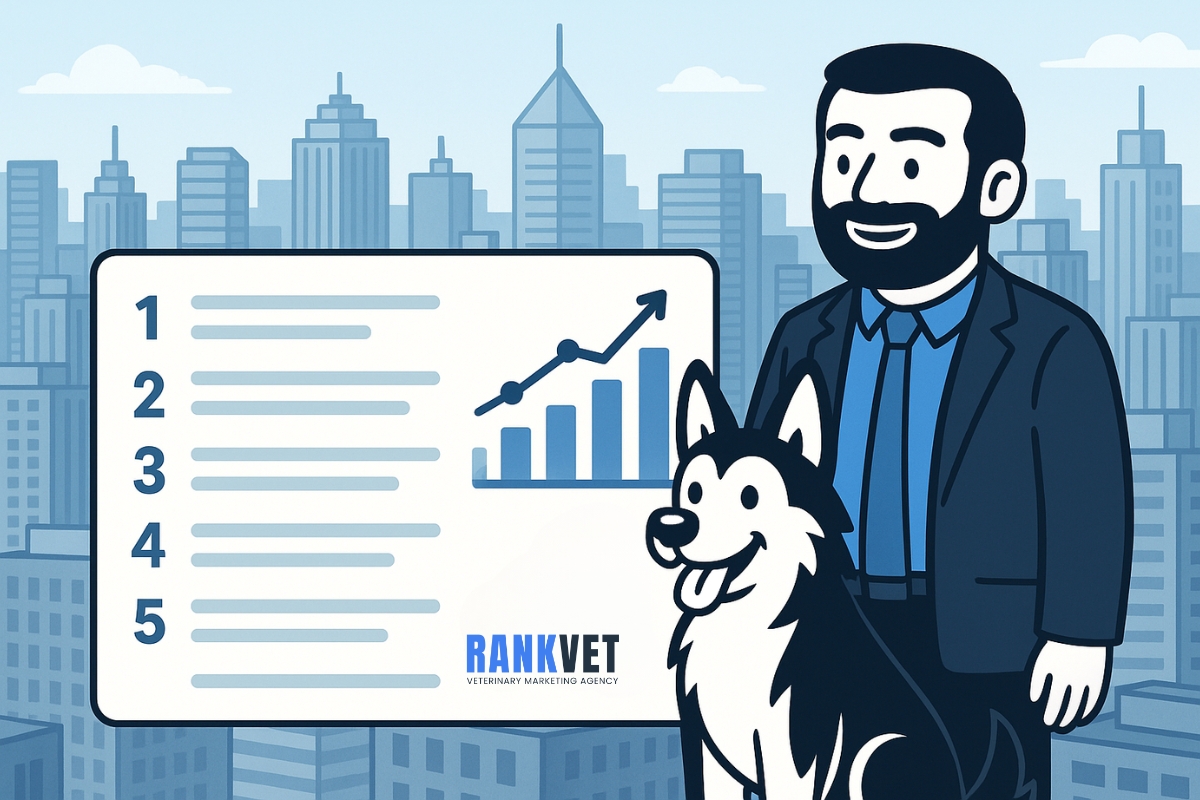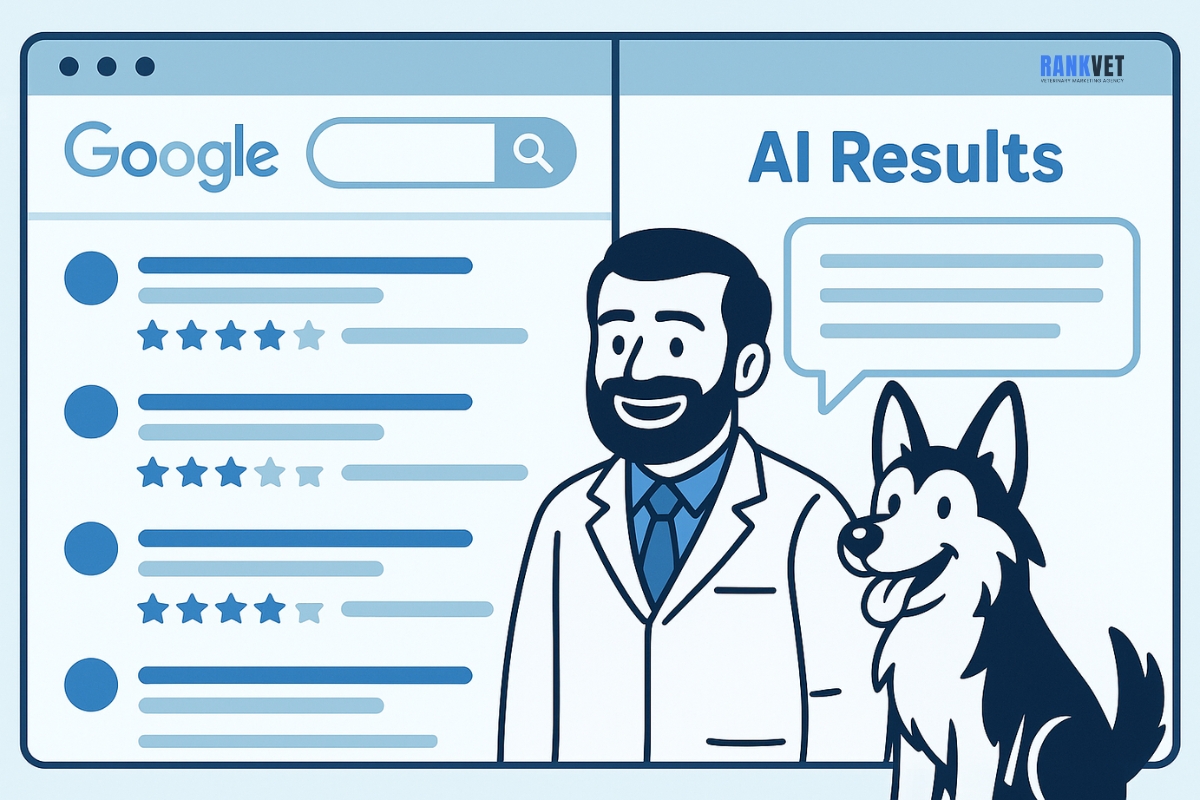Pet owners aren’t the only ones who fire off rapid-fire questions at Google – vets do it too. Below are the five questions I field most often during discovery calls. Feel free to skim for the one that’s been nagging you, or share the whole block with a colleague who still thinks veterinary SEO is “just adding keywords.”
How long does it take to see results from veterinary SEO?
Search visibility is a marathon wrapped in a few sprint intervals.
- Technical fixes (SSL, Core Web Vitals, schema) can nudge your ranking needle inside two to four weeks because Google’s bots re-crawl high-traffic sites frequently.
- Content relevance – fresh service pages and blog posts – begins compounding after 45-60 days as Google tests your pages in different positions.
- Authority signals (backlinks, reviews) are the slow-burn gains; most clinics hit their local “prominence tipping point” around month four, when review velocity and citation consistency finally outweigh competitors’.
In RankVet we track three parallel KPIs – map-pack impressions, organic click-throughs, and booked appointments – so you can see early technical wins, mid-term traffic lifts, and the long-term revenue curve all in one place. Expect meaningful, lead-producing traction by the 90-day mark and a steady climb for 9-12 months thereafter. If you need calls tomorrow, pair SEO with a tightly geofenced Google Ads campaign; the two channels feed off each other.
Related article: What Exactly Is SEO for Veterinarians, and Why Is It Important?
Can I handle SEO in-house, or do I need an agency?
DIY works if you have three ingredients:
- (1) time – about five hours a week for writing, posting, and auditing
- (2) tools – Screaming Frog, GA4, a citation tracker, and a review-request platform
- (3) training – someone who knows how to interpret crawl errors, schema warnings, and Core Web Vitals.
Most single-location practices already struggle to keep the surgery schedule on track, which means SEO tasks slip into after-hours limbo. The hybrid model we recommend is “owner-driven, agency-amplified.” Your team supplies insider knowledge – seasonal service priorities, patient success stories, photos – while a specialist turns that raw material into crawler-friendly pages, structured data, and strategic backlinks. Think of us as the anesthesia monitor: you could watch the vitals yourself, but delegating frees you to focus on the procedure.
Isn’t Google Ads faster and maybe cheaper than SEO?
Paid search is the express lane, but like any toll road the meter keeps running. Google Ads convert quickly for intent-rich queries (“emergency vet open now”) and can bridge the gap while organic rankings mature. Yet cost-per-click in dense metro areas often ranges from $6-$14 for veterinary terms; a poorly tuned campaign can torch $1,500 in a month with nothing to show but bounced traffic. SEO, by contrast, builds a compounding asset – once you own a top-three organic slot, you don’t pay per click. Our data across 40+ clinics shows the blended strategy (40 % budget Ads, 60 % SEO) yields the lowest cost per booked exam over 12 months. In other words, Ads are jet fuel, SEO is the engine; you need both, but the engine keeps running after the fuel burn.
What are the biggest SEO mistakes vet clinics make?
- Single “Services” page – Google can’t rank “/services” for 30 different procedures. Create unique URLs (e.g., /dog-dental-cleaning-chisinau) with targeted metadata.
- Inconsistent NAP – “St.” on Yelp, “Street” on Facebook, missing suite number on Bing—those micro-mismatches erode prominence.
- Neglecting Google Q&A – Unanswered questions look like abandoned front desks. Seed common queries yourself and answer within 24 hours.
- Stock photos – Authentic clinic shots outperform stock by 52 % in GBP click-throughs in our split tests.
- Ignoring Core Web Vitals – A slow mobile site tanks both rankings and user experience; aim for <2 s Largest Contentful Paint.
Avoid these pitfalls and you’re already ahead of 70 % of local competitors.
Tools and Resources to Kick-Start Your Clinic’s SEO
| Purpose | Free / Paid | Why It Matters |
|---|---|---|
| Keyword research | Google Keyword Planner (free), Ahrefs (paid) | Uncovers procedure-based, local modifiers—think “spay cost Chisinau.” |
| Technical audits | Google Search Console (free), Screaming Frog (freemium) | Flags crawl errors, duplicate metas, and schema issues. |
| Citation tracking | BrightLocal (paid) | Monitors hundreds of NAP listings and review sources. |
| Review management | Google Business Profile app (free), GatherUp (paid) | Automates post – visit review requests, boosting E-E-A-T. |
| Call tracking | CallRail, CallTrackingMetrics (paid) | Proves which keywords and pages drive booked exams. |
Bookmark this page and allocate two hours to set up the free tools; they alone can reveal low-hanging fruit worth thousands in revenue.
Next Steps? Claim Your Free Veterinary SEO Audit
If you’ve read this far, you already see how powerful (and complex) local search can be. Let’s simplify it: book a 30-minute free audit and I’ll personally walk you through:
- Your current map-pack visibility for up to five high-value services.
- The top three technical errors throttling your site speed.
- A customized 90-day action plan (no obligation).
Call +1 (206) 900-9029 or choose a time from our booking page. No jargon, no hard sell – just a veterinarian who speaks Google fluently.





